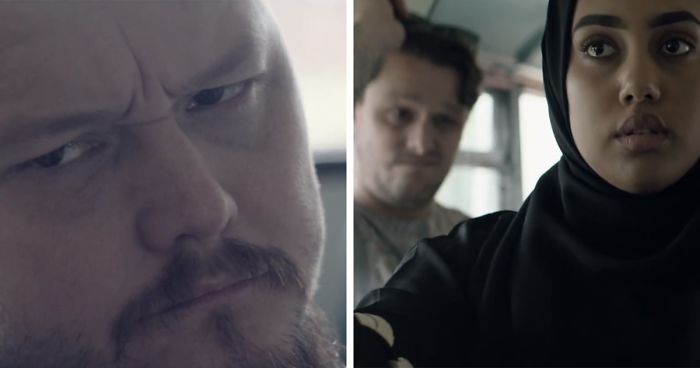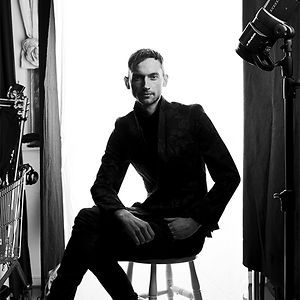Bertrand Russell once said, “Few people can be happy unless they hate some other person, nation, or creed”.
Such ‘happy’ people often dominate our screens and media headlines spreading happiness beyond the shores of their own shallow ignorance. It could be an Australian senator Fraser Anning mumbling in his monotonous voice that ‘all Muslims are not terrorists [but] certainly all terrorists these days are Muslims’; another desperate Australian politician Pauline Hanson proudly reciting her carefully rehearsed racist drivel that ‘Islam is a disease [that] we need to vaccinate ourselves against’; Donald Trump and his indiscriminate Muslim ban, or Boris Johnson and his burka ‘letterbox’ jibe.
Jihadist Killers on our Streets
Unfortunately, such headline-making comments have real-life consequences – not for terrorists, religious writings or magazine ratings but for an innocent young girl wearing a hijab to school who hasn’t yet learned the concept of hate; a talented young man who is 50% less likely to be offered job opportunities because of his Muslim name, of an elderly Muslim woman going to a mosque to pray that her daughter comes back home safe after yet another headline.
To translate this into numbers, after the Christchurch mosque shootings in Australia that claimed the lives of 51 Muslim worshipers and left 49 more injured, instead of support and reassurance, Muslim people in the UK were greeted with the rise in an anti-Muslim hate crime by 593% in the following weeks. After Boris Jonson’s irresponsible comments, there was an increase in an anti-Muslim hate crime by 375%, with many incidents referencing Boris Johnson or his language.
New Fears of Jihadi Attack
Hating something is a natural part of our psychology and our lives. It’s perfectly normal to hate terrorists, or for some to dislike religion, kale, pink color, or the whole world when you get up to work at 5.30 am. But it is not OK to assume that a stranger we have never met is the same as any other random person that is similar in appearance.
Such discriminatory attitudes will be familiar to all of us. People judge us on a daily basis because of the education that we have or do not have, city or a part of the city we are from, financial situation, age, appearance, gender, accent or dialect, a number of Instagram followers, and other features that have little to say about our real personalities, skills, talents, and abilities. Perhaps the difference is that fewer of us will make the chilling hate crime statistics compared to common Muslim people, depending on the headlines of the day.
Terrorists in the Terminal
Changing these attitudes is a long and difficult process but if we want to learn to listen to people’s stories without bias or prejudice, we must start by looking for the faults in ourselves, not other people. And if Russel was right in his definition of happiness, then I would rather live unhappy in the world free from hate. Free from Islamophobia.
Dr. Marius Janciauskas
449views
Share on FacebookHow wrong, these videos are, to state that we need to hate someone or something - in order to be happy. I cannot, nor will I accept the teachings or beliefs of the Nazis, of the KKK, or of Islam. This does make me a hateful person. I simply don't want these belief systems and their followers, anywhere in my life. The 3 groups mentioned, teach hatred, death to non conformists, and a whole slew of criminal acts.
Actually, it seems that you are exactly the target audience of the video! You've just compared the world's nearly 2 billion practicers of Islam to Nazis, who's beliefs were very much the minority at the time. Islam does not teach hate, but Islamic extremists do. Just as Buddhist extremists do, as to Christian extremists, who, to be honest, have done equally as much damage to global humanity as Muslims, if not more. The precise purpose of the video is to draw attention to the fact that Western media outlets DO try to cultivate fear a d hate towards Islam. And seems to have worked on you! Of course you're not hateful, just wildly misinformed. I would suggest that instead of deliberately preventing any (potentially wonderful) people of Islamic faith from coming anywhere near your perfectly cultivated life, that you might be better served by broadening your horizons and listening to varying viewpoints.
Load More Replies...How wrong, these videos are, to state that we need to hate someone or something - in order to be happy. I cannot, nor will I accept the teachings or beliefs of the Nazis, of the KKK, or of Islam. This does make me a hateful person. I simply don't want these belief systems and their followers, anywhere in my life. The 3 groups mentioned, teach hatred, death to non conformists, and a whole slew of criminal acts.
Actually, it seems that you are exactly the target audience of the video! You've just compared the world's nearly 2 billion practicers of Islam to Nazis, who's beliefs were very much the minority at the time. Islam does not teach hate, but Islamic extremists do. Just as Buddhist extremists do, as to Christian extremists, who, to be honest, have done equally as much damage to global humanity as Muslims, if not more. The precise purpose of the video is to draw attention to the fact that Western media outlets DO try to cultivate fear a d hate towards Islam. And seems to have worked on you! Of course you're not hateful, just wildly misinformed. I would suggest that instead of deliberately preventing any (potentially wonderful) people of Islamic faith from coming anywhere near your perfectly cultivated life, that you might be better served by broadening your horizons and listening to varying viewpoints.
Load More Replies...




12
6